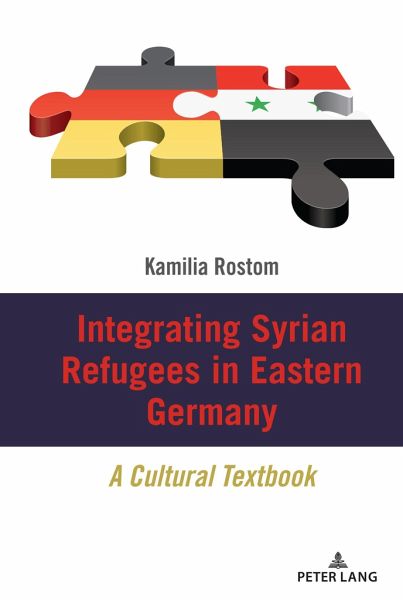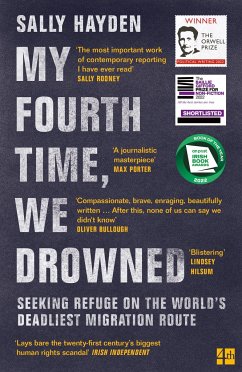
Integrating Syrian Refugees in Eastern Germany
A Cultural Textbook
Versandkostenfrei!
Versandfertig in 6-10 Tagen
100,65 €
inkl. MwSt.
Weitere Ausgaben:

PAYBACK Punkte
0 °P sammeln!
This book covers the integration of Syrian refugees in Germany, especially eastern Germany. In this novel genre of "teddytext" the author visibly reacts with scholarly evidence to explain how eastern and western perspectives converge and differ. The author guides refugee integration by showing Syrians how Germans think, and vice versa. First comes a panoramic overview of the West's "Diversity Transition," now changing ethnic to mixed societies. The rescue effort is both corporatized and voluntary process-action, a mass form of government-civil society cooperation modernizing and speeding up co...
This book covers the integration of Syrian refugees in Germany, especially eastern Germany. In this novel genre of "teddytext" the author visibly reacts with scholarly evidence to explain how eastern and western perspectives converge and differ. The author guides refugee integration by showing Syrians how Germans think, and vice versa. First comes a panoramic overview of the West's "Diversity Transition," now changing ethnic to mixed societies. The rescue effort is both corporatized and voluntary process-action, a mass form of government-civil society cooperation modernizing and speeding up conventional integration processes. Main obstacles include the national east-west split, the east's capital strike, and governmental efforts to manage Germany's spoiled identity through politicized stigma management imposed via the remembrance policy. These together make easterners second class citizens. Former refugees are ethnic victim groups unable to take full part in Germany's corporation-colonized lifeworld. This includes former Prussians and returned USSR German settlers whose political awakening seized on refugees in a struggle for power to oppose the remembrance policy. Brandenburgers oppose refugee integration through Know-Nothingism, deception, and ostracism, in part because refugee integration would threaten their "dirty togetherness" social organization. Nonetheless, refugees interviewed and examined in Berlin and Brandenburg are educated, motivated and, despite their traumatized condition, determined to stay and succeed. Their integration is happening more quickly and promises to be more completely successful than ever before. Improved skills recognition and refugee education are keys. Integration would be even better if Germany itself were integrated.














